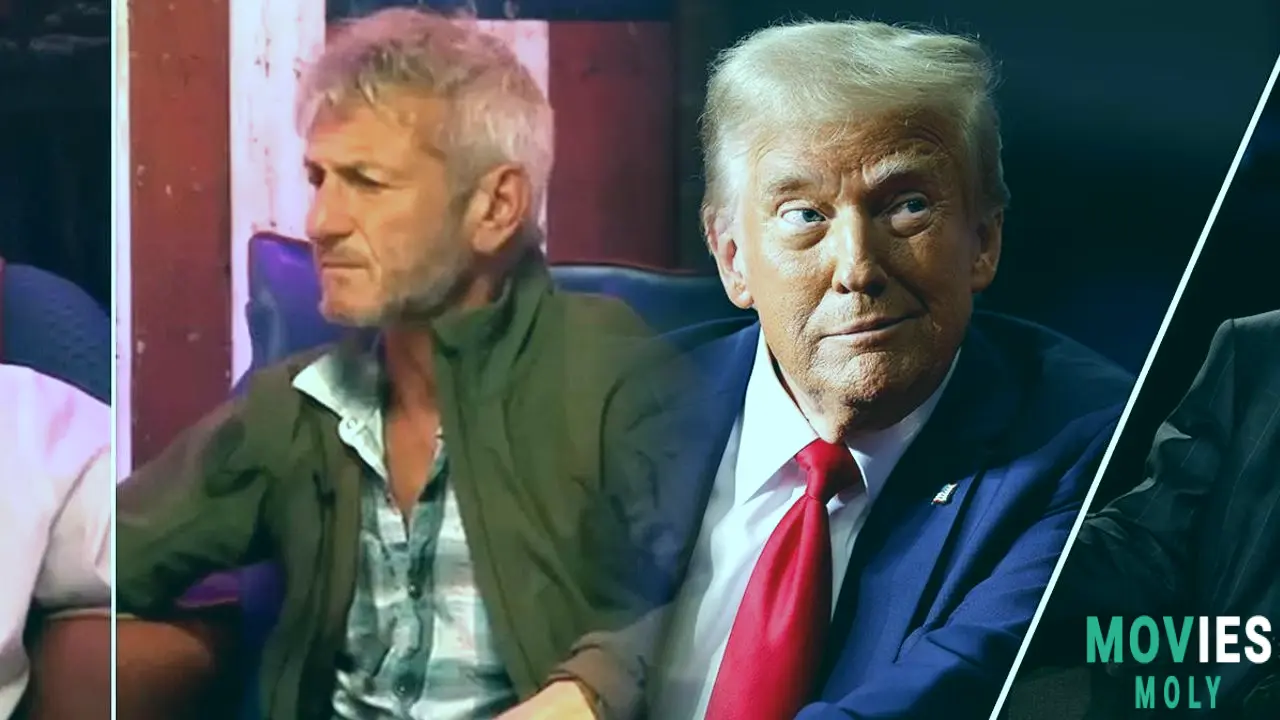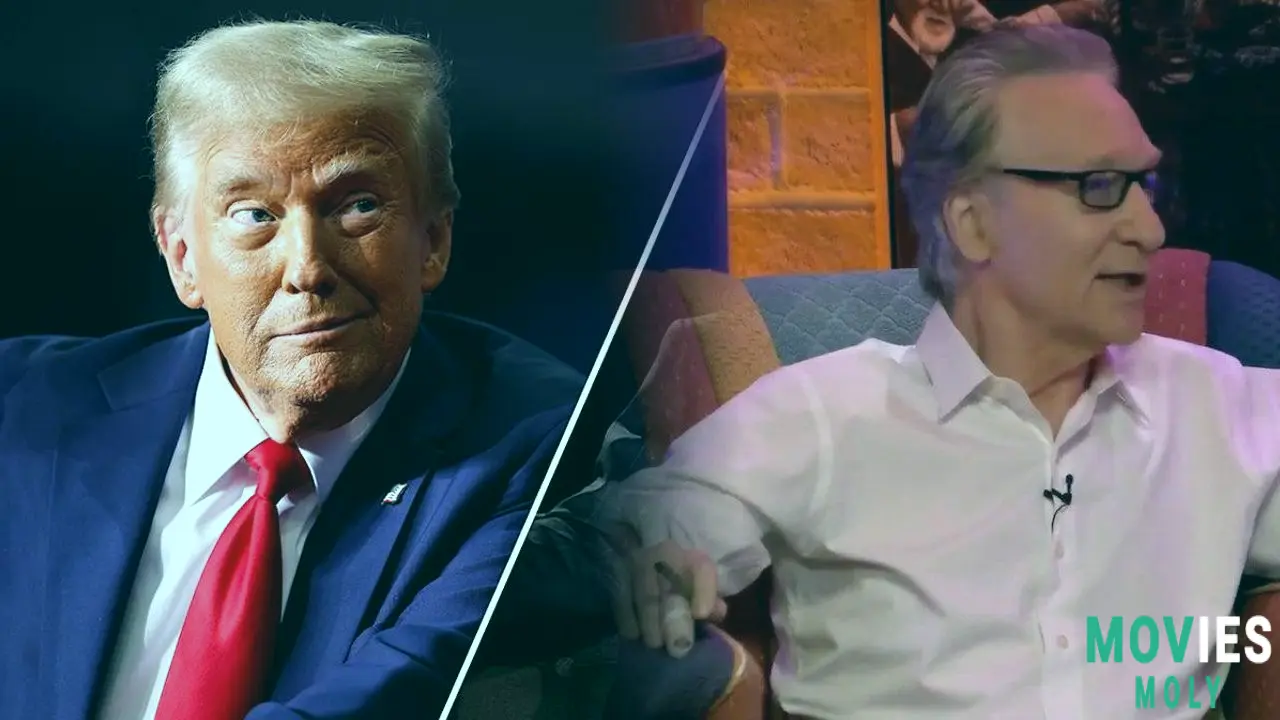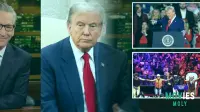Bill Maher and Sean Penn recently had a rather public disagreement. This occurred on an episode of Maher's podcast, "Club Random." Penn questioned Maher's choice to attend dinner with Donald Trump. This sparked a heated reaction from Maher, who mentioned Penn's own history of meeting with problematic personalities. It was a vibrant discussion that demonstrated how diverse people feel about talking to leaders with whom they disagree.
Maher's dinner with Trump occurred in April. Kid Rock, a mutual buddy, arranged it up. At the time, Maher justified his decision. He claimed there has to be "something better than hurling insults from 3000 miles away." Maher later discussed the two and a half-hour dinner on his show "Real Time With Bill Maher." He stated they talked about the Gaza War, Iran, and Trump's potential third term. It sounds like they discussed a variety of serious things over their supper.
Sean Penn asks Bill Maher about his dinner with Donald Trump and how it was handled.The actor expressed concerns with the host's approach to his political meeting.
During the podcast, Maher asked Penn if he believed he did the right thing by dining with Trump. Penn said, "Absolutely, you're so intelligent, you go there. It makes no difference whether we like it or not; this is the President of the United States. There are many reasons why I was speculating. It would be beneficial for you to do it." Initially, this may appear to provide support. Penn later said that he watched Maher discuss the dinner on "Real Time" and wished it had been "less successful."
Maher disagreed with Penn's concept of success. He reported that his meal was "less successful because I never stopped saying all the things I've always said about him." Maher stated that it "would have been successful if he had somehow persuaded me to support him." So it was not successful." Penn pushed back. He claimed Maher should have "edited" more while presenting the dinner facts. He felt Maher might have just stated, "He treated me well, that's all," and left it at that. Penn, recognized for his film work as well as his interest in journalism and politics, has even conducted interviews with Mexican drug lord Joaquin 'El Chapo' Guzmán. This demonstrates Penn's familiarity with problematic individuals.
Penn stated that he had never been invited to dinner with Trump. He stated that the only reason he would decline an invitation was because "it's a long flight." Maher reacted strongly to this comment. At this point, the conversation had become quite heated. Maher wasn't holding back his emotions. He clearly felt Penn's critique was unfair.
Bill Maher responds to Sean Penn's previous meetings with controversial leaders.

The conversation turns to Penn's encounters with Fidel Castro and Hugo Chávez.
Maher next responded: "Really, you'll meet with f---ing Castro and Hugo Chavez but not the President of the United States?" This inquiry hit a nerve. Sean Penn had already met with former Cuban President Fidel Castro and his brother Raúl. He also visited with Hugo Chávez, Venezuela's impassioned president. These meetings frequently attracted a lot of attention. They demonstrated Penn's willingness to engage with personalities strongly vilified in the United States.
Penn seems unsure at first when answering Maher's challenge. He continued: "I saw good results come out of some of those things." When Maher spoke again, Penn clarified his position. He elaborated: "I just personally wouldn't trust anything that was said in the room including personality." This means Penn believed that any conversation with Trump would not result in genuine impact or truth. He suggested that Trump's demeanor would make it difficult to get anything significant out of a conversation. This viewpoint contrasts sharply with Maher's opinion that simply being in the room and observing is valuable.
Maher struck back. He stated, "It is not a matter of believing it; it is a matter of seeing it, feeling it, and knowing it. I'm telling you, there's a completely different guy behind closed doors in a different atmosphere." Maher believes that direct experience, even if you disagree with someone, provides vital insights. He believes that seeing someone in a less formal situation can expose distinct aspects of their personality. This is a fundamental aspect of Maher's approach to involvement. He believes it is more important to understand your political opponents firsthand than to simply listen to what others say about them.
The Ongoing Debate and Maher's Offer to Connect Sean Penn with Trump

Despite the disagreement, Maher attempts to bridge the political divide.
Maher continued to make his case. He even offered to obtain Penn an invitation to a future dinner with Trump. He felt they could discuss political or charitable topics. Penn was not easily persuaded. He appeared uneasy with the concept. He promised not to "fool myself." I was going to get somewhere with him. Penn believed he would have "no influence" in such a conference. This demonstrates Penn's strong cynicism about the effectiveness of personal diplomacy with someone like Trump.
Maher described Penn's attitude as "bad." He emphasized that for Donald Trump, "it's all about personal relationships." Maher added, "I'll get you an invitation. In certain ways, he is a star. I bet he'd like to meet you. Maher seems to believe that Trump's desire to meet renowned individuals could help get Penn in the door. Even in the midst of a heated disagreement, Maher attempted to establish a common ground. This demonstrates Maher's conviction in the effectiveness of direct engagement. He believes it can occasionally extend beyond political divides.
This entire interaction emphasizes a long-standing disagreement. Is it preferable not to engage with those you strongly oppose? Is it better to meet them in person, even if you believe you won't be able to persuade them? Sean Penn strongly opposes dealing with Trump, citing his assessment of Trump's character and his own ability to make a difference. Bill Maher, on the other hand, favors direct observation and the unexpected discoveries that can emerge from intimate interactions. He believes that thoroughly analyzing his opponent is a worthy endeavor. Their argument is less about who is right or wrong as it is about two opposing perspectives on how to cope with political differences.
The entire conversation was an intriguing look at how two well-known persons with strong political beliefs approach the concept of direct participation. It reminds us that there are numerous approaches to understanding the world. Those methods can occasionally produce a lot of conflict, even among friends. It serves as a reminder that our personal ideas influence how we act and interact with others, particularly in the realm of politics.



